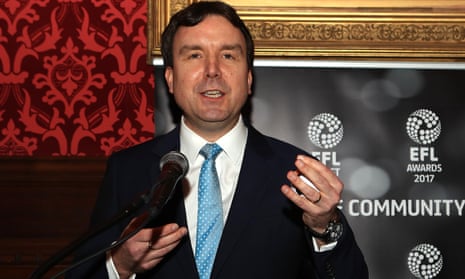For women who have been involved in the #MeToo movement, the no-confidence vote in Theresa May on Wednesday was supposed to be the most meaningful of all. It was the first time Conservative MPs accused of sexual misconduct who had had the whip removed pending the outcome of an investigation would have had to miss a key vote. What could be more important than a vote on the future leadership of their party? But when it came down to it, their friends chose to end their suspensions and reinstate the whip before the investigations had run their course.
The result is a resounding vote of no confidence in the ability of political parties to hold powerful men to account over accusations of sexual misconduct. Charlie Elphicke was interviewed under caution by the police this year in connection with “alleged sexual offences” against three female members of staff, one of them rape – all of which he denies. Andrew Griffiths was forced to resign as a minister for small business last year following the publication of some of the 2,000 sex messages he sent to his constituents, which Jess Phillips today read out in the Commons as a timely reminder of the impact on women’s lives. Yet with the whip reinstated, it looks likely that the investigations into their alleged behaviour will never been seen through.
The decision on Theresa May’s premiership did not depend on the votes of the two MPs, and it was never going to. Reports suggest that Griffiths supported May while Elphicke voted against her, effectively cancelling each other out, and though wounded by her challengers May has survived again. But there will be many more crunch votes to come, and these men should continue to have the whip suspended while the party completes its investigations.
Last month Women’s Equality Party activists replaced the “W” in Westminster signage with a “P” to mark the one-year anniversary of the sexual harassment scandal in British politics. Underground signs, street signs and maps across the borough read Pestminster to protest against the fact that in the 12 months since women bravely came forward, not a single MP had lost their job. In total, 14 MPs were accused of sexual harassment, as were a former first minister, two MSPs and four unnamed officials. The allegations against these politicians included everything from rape and groping to unwanted sexual advances and inappropriate text messages. The failure of political parties to properly investigate and, where appropriate, impose consequences says everything about why rates of report for sexual violence remain so low.
It was bad enough that the six politicians who had the whip withdrawn were allowed to continue as independents in the immediate aftermath. But then MPs from across the political divide did something extraordinary – in July they voted together not to look into “historic” allegations. The new independent complaints procedure was approved by parliament on the condition that all “historic” cases would not be subject to it. That meant that the only investigation Pestminster politicians would face would be those brought by their own party.
Labour, meanwhile, continues to drag out two of its own investigations, and although Phillips’s protest in parliament today should reassure us that there are some politicians who want to change how such complaints are handled, there is nothing to suggest that the Labour leadership won’t rely on its own suspended MPs to shore up their votes over the coming months.
Forget the vote of no confidence, parliament risks giving alleged sexual harassment a vote of no consequence.
At the tail-end of a year in which women have spoken out about sexual abuse in numbers too big to ignore, this couldn’t be a more painful reminder that powerful men will not face the proper level of scrutiny for allegations of harassment. Just as with Trump’s election as president and Kavanaugh’s appointment to the US supreme court, it chips away at our already depleted sense of hope that complaints made by women and girls will be taken seriously. How telling it was that Elphicke responded by saying, simply: “I remain as confident as I always have been of clearing my name.” Of course he does. Just compare this to the outrage over the expenses scandal, which resulted in four politicians being jailed and countless others standing down. Can we now surrender the debate on whether #MeToo has gone too far?
Building a new party in the middle of a political crisis has not been easy. Easy would be continuing to pretend that the mainstream parties will turn their attention to women’s equality some time soon (after Brexit, after the next general election). But if the events of Wednesday show us anything at all, it is that right now, nothing matters more to them than votes. The right time will be some way away. So the only way to make equality for women and girls a political priority is to put it on the ballot paper.






